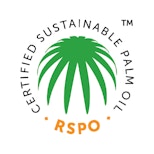Some 5 million children are affected by the palm oil industry in Indonesia, either as dependents of palm oil workers, or as workers themselves, data from Unicef, a children’s charity, has shown.
Children who work on plantations, doing a range of jobs including picking up loose fruit, are not only exposed to the hazards of plantation labour in the tropical heat—the impact extends beyond work. Childen living on or around plantations tend to live in remote areas, cut off from other communites. Some have never left the plantation. The palm oil trade has played a role in improving rural infrastructure, but plantation children often have limited access to basic services such as education and healthcare.
Child labour is a sensitive issue and, for some, is open to interpretation. When is a child working on a plantation exploitation, and when is it a child helping their parents out after school? And should the priority be to stop all child labour, or to address the root causes of child labour—rural poverty?
To discuss what can be done to keep children safe and families together on palm oil plantations, Eco-Business correspondent Zafirah Zein hosted a discussion with Kamini Visvananthan, human rights and social standards manager for the Roundtable on Sustainable Palm Oil (RSPO), and Ines Kämpfer, executive director, Center for Child Rights and Corporate Social Responsibility (CCR CSR).
Tune in as we talk about:
- The definition of child labour
- What work are children doing on plantations?
- Improving the welfare of women to help children
- How are palm oil companies working to aid children’s rights?
- How can projects to help children be scaled up?

















